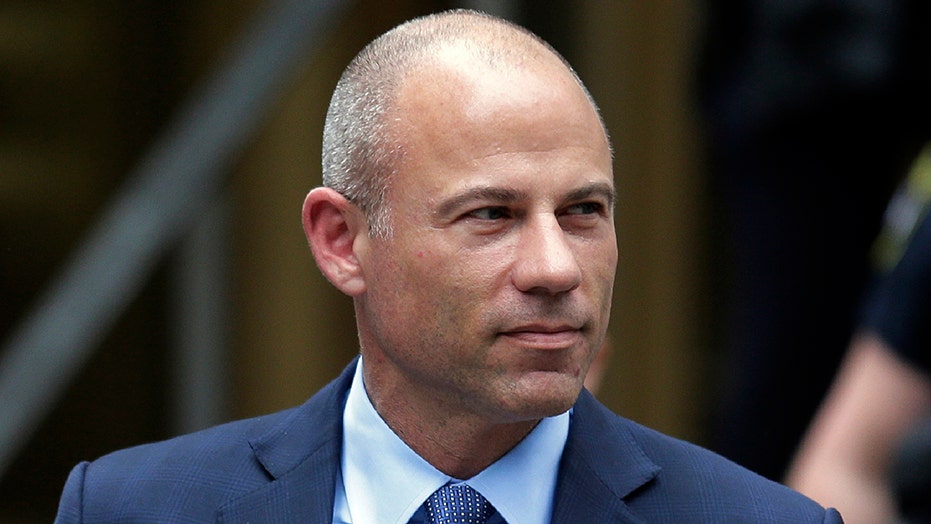Disgraced lawyer Michael Avenatti has seen his prison sentence for financial fraud reduced from 14 years to just under eight months following a resentencing in Los Angeles. Avenatti, known for representing Stormy Daniels against former President Donald Trump, pleaded guilty to multiple counts of wire fraud and obstructing IRS administration. The recent decision arose from a successful appeal that questioned the initial calculations of his victims’ financial losses, which the court deemed overly punitive.
| Article Subheadings |
|---|
| 1) Background of Avenatti’s Convictions |
| 2) Details of the Resentencing Hearing |
| 3) Avenatti’s Request for Leniency |
| 4) Impact of Recent Civil Unrest |
| 5) Future Implications for Avenatti |
Background of Avenatti’s Convictions
In 2022, Michael Avenatti was convicted on multiple counts of wire fraud and one count of obstructing IRS administration. His criminal activities included misappropriating funds meant for his clients by collecting settlement payments and diverting those funds into personal accounts. Alongside these charges, Avenatti faces further legal troubles related to extortion attempts against Nike and the theft of funds from Stormy Daniels, who is known for her alleged affair with Donald Trump. Originally, Avenatti’s actions resulted in a hefty 14-year sentence, emphasizing the gravity of his fraudulent activities.
Details of the Resentencing Hearing
On Thursday, U.S. District Court Judge James Selna conducted Avenatti’s resentencing, which culminated after a significant ruling by the Ninth Circuit Court of Appeals in October. The appellate court vacated the original sentence, arguing that it was based on inflated assessments of the financial losses suffered by the victims. During this latest hearing, Avenatti was sentenced to 135 months, which subtracts 40 months already accounted for in a previous case regarding Stormy Daniels fraud. This reduction signals a shift towards a more nuanced evaluation of his criminal actions’ financial implications.
Avenatti’s Request for Leniency
Ahead of the resentencing, Avenatti submitted a memorandum seeking a reduced sentence on the basis of personal reform during his time in prison. This document outlined his reformed character and contributions to fellow inmates, including his service as a suicide watch companion and his involvement in AA meetings. Avenatti argued that he had transformed into a “model inmate,” emphasizing his efforts to operate with integrity behind bars. Despite prosecutor requests for a sentence close to the original terms, the judge ultimately decided to grant some leniency, showcasing the court’s willingness to consider self-improvement and reform in sentencing.
Impact of Recent Civil Unrest
The recent sentencing hearing occurred amid heightened tensions in Los Angeles, marked by civil unrest and protests. Notably, the courthouse was heavily secured with National Guard presence due to riots earlier in the week. This context framed Avenatti’s hearing in a charged atmosphere, which may have influenced public opinion regarding his case. With courthouse doors boarded up and windows cracked from the tumult, the grim backdrop of unrest served as a stark reminder of the widespread social issues affecting the area, adding layers of complexity to Avenatti’s legal situation.
Future Implications for Avenatti
With Avenatti’s prison sentence reduced and the terms of his resentencing clarified, questions arise regarding his future legal battles. He remains guilty of multiple counts, which maintain the weight of his convictions in light of upcoming hearings related to extortion and financial misconduct offenses. Avenatti’s quest for legal redemption may involve ongoing appeals in other cases, as previous attempts to overturn convictions have faltered. Furthermore, the legal repercussions of his actions could have lasting effects on his life beyond prison, given the notoriety attached to his name and the continuing ramifications of his dealings with Stormy Daniels and other clients.
| No. | Key Points |
|---|---|
| 1 | Michael Avenatti saw his prison sentence reduced to just under eight years following a resentencing in Los Angeles. |
| 2 | The Ninth Circuit Court of Appeals had previously vacated the original 14-year sentence based on inflated projections of victim losses. |
| 3 | Avenatti’s attorney has highlighted his efforts at personal reform during imprisonment, including volunteering and participating in recovery programs. |
| 4 | The resentencing occurred amid civil unrest in Los Angeles, which added context to the courthouse atmosphere. |
| 5 | Ongoing implications remain for Avenatti as he navigates further legal challenges related to extortion and the theft from Daniels. |
Summary
The reduction of Michael Avenatti‘s prison sentence highlights significant legal considerations around sentencing and personal reform. As he continues to navigate the repercussions of his past actions, the implications of his case serve as a reminder of the complexities surrounding high-profile legal battles. The court’s decision marks a pivotal moment in both Avenatti’s life and the broader narrative of accountability in the legal field.
Frequently Asked Questions
Question: Why was Avenatti’s sentence reduced?
Avenatti’s sentence was reduced following a successful appeal that questioned the financial loss assessments made during his original sentencing, which the court deemed excessive.
Question: What were Avenatti’s main legal issues?
Avenatti was convicted of wire fraud and obstructing IRS administration, primarily for misappropriating settlement funds intended for his clients.
Question: How did Avenatti demonstrate reform during his imprisonment?
Avenatti referenced his role as a suicide watch companion for other inmates, his participation in recovery programs, and volunteering in the prison library as indicators of his attempts to reform his character.
